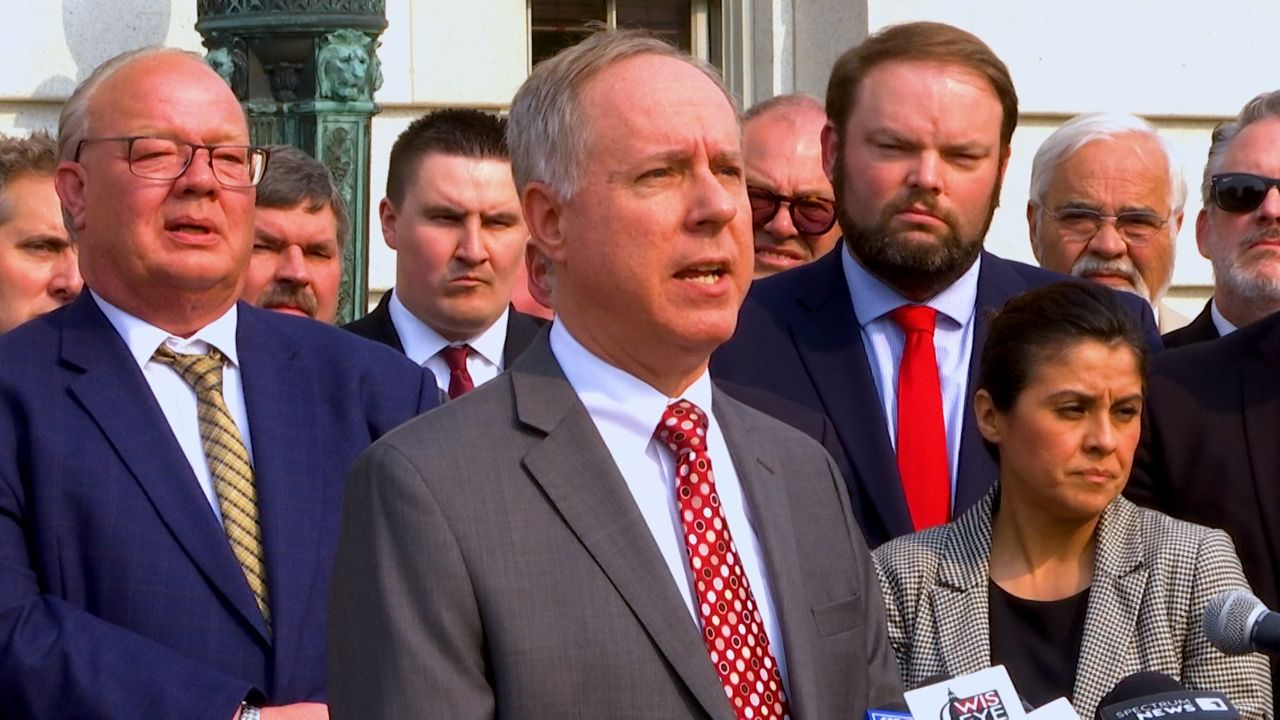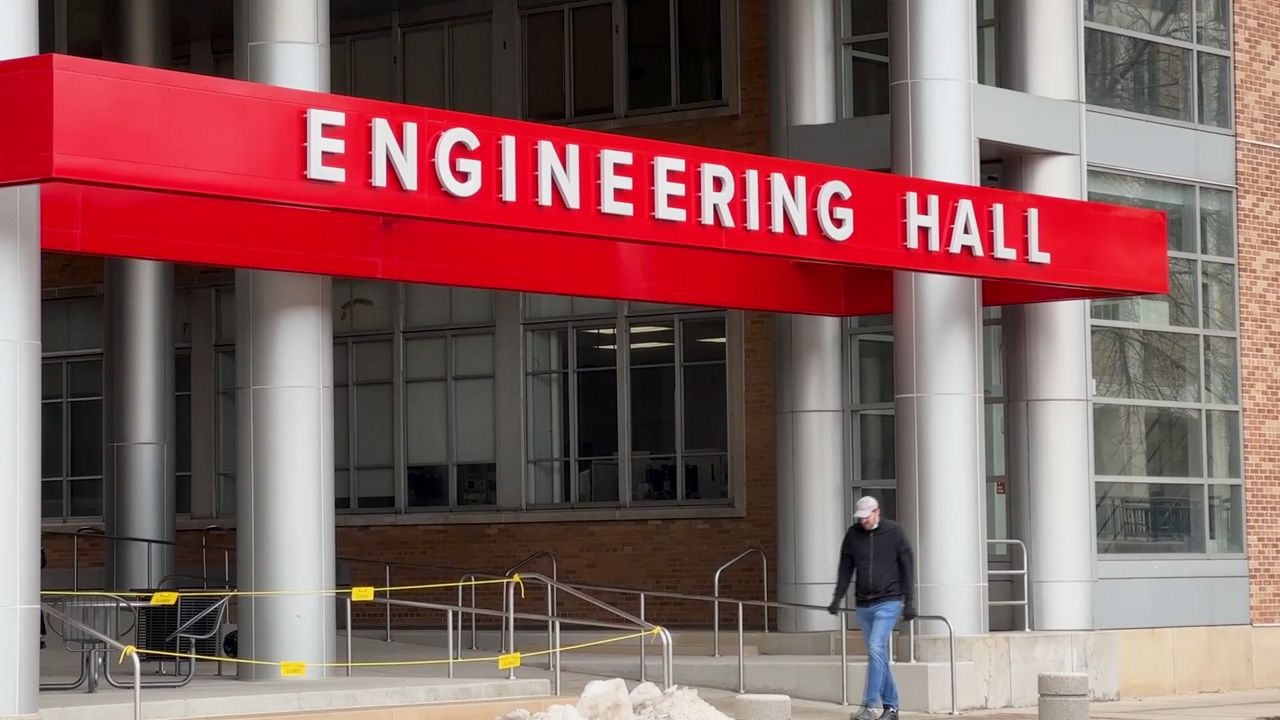MADISON, Wis. — Assembly Speaker Robin Vos reflected on his caucus’ accomplishments in 2023 while laying out his political aspirations for 2024.
Spectrum News 1 Political Reporter Anthony DaBruzzi sat down with the Rochester Republican to find out what, if anything, has changed when it comes to reaching across the aisle, as well as what policies are most likely to pass next year.
You can watch the extended interview above.
If Speaker Vos had to use one word to sum up the biennium so far, it would be "success." Though he had some disappointments, which include a Republican tax cut plan vetoed by Gov. Tony Evers, Vos said there were many other accomplishments.
“If you think way back, we did a bill to help increase literacy in schools, so that every third grader can read at grade level—big investment in that,” Vos explained. “We did a housing package to help try to get more affordable housing, to focus on the kind of next generation. We did a shared revenue package. We got an expansion of school choice. We did a bunch of election reforms. We passed a bill to allow birth control over the counter, so many good things that it's hard to say one thing was a success, but in general, I would say it's successful.”
Republicans and Democrats were able to come together on several major legislative packages throughout the year, including passing a two-year budget, a historic deal on shared revenue, alcohol reform, as well as funding for improvements of American Family Field where the Brewers play. Vos, however, said that’s really the status quo.

“It's always been this way,” Vos said. “Unfortunately, what usually gets news coverage are the things that we disagree on, not where we found consensus. So, this was a time like normal. I think since I've been Speaker, over 90% of the bills that passed had votes for both parties, so that's the normal way we operate.”
2024 could bring even more compromise between both parties or, at the very least, the opportunity for it. Vos is optimistic progress will come from his various task forces on artificial intelligence, childhood obesity, human trafficking, and truancy. However, the biggest proposals involve putting an abortion access referendum on the spring ballot and legalizing medical marijuana.
“One of the things we're going to bring up in 2024 is a medical marijuana bill, and I've been saying we want to introduce one, and we have, we've been working on it, but it's taken us a while to find a consensus on the Assembly Republican side to be able to know we're going to have the votes to pass it, and I feel pretty confident,” Vos said. “It will come out in January. The sad thing is, I think most of my Democratic colleagues, because they only want recreational or nothing, we're going to have to pass it with just Republican votes. Now, my goal is I want Democrats to vote for it too, but if they want everything, they usually get nothing. You got to find that common sense middle ground, so I feel like there's a whole lot of issues like that.”
Assembly Republicans plan to wrap up their legislative business by the end of February, but before they do, one of the biggest items on their to-do list will be approving the agreement with the Universities of Wisconsin, which the Board of Regents already approved earlier this month.
“To their credit, they kept their side of the deal,” Vos added. “I think that the chancellor at Madison and some of the other chancellors who were involved, along with President Rothman, did a good job. We negotiated in good faith, and now our job is to keep our end of the bargain. So, I intend to push as hard as I can to make sure that we get the deal that we agreed on through the process.”

The deal includes releasing already approved pay raises for UW employees, automatically admitting high schoolers who graduate in the top 10% of their class to any UW school (except for UW-Madison, which would be limited to those in the top 5%), changing the state’s reciprocity agreement with Minnesota, as well as restructuring Diversity, Equity, and Inclusion (DEI) programs and positions, which has drawn the most criticism from Democrats.
“Diversity is something everybody supports,” Vos explained. “Every Republican I know, every person I know, wants to have the best-qualified people do whatever job they applied for. It doesn’t matter if you’re Black, White, or Hispanic, rich, poor, [or] wherever you’re from—and I think, unfortunately, we have gone to the point of saying we wanted to have the content of your character and the quality of your skills be who gets hired and why you’re given an opportunity to the opposite where it’s now based on race again for an awful lot of people. That was wrong in 1950s Alabama, and it’s wrong in 2020 Wisconsin.”



